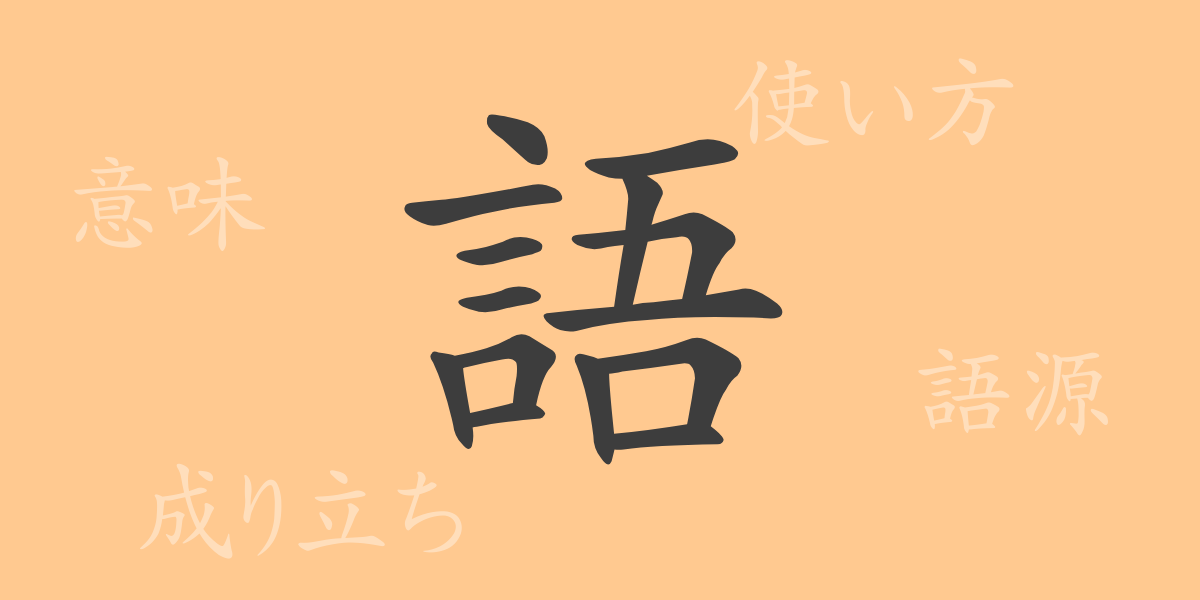Japanese is rich with numerous kanji, each holding unique histories and meanings. “語” (ご, go) is widely used as a common kanji in Japan, forming the foundation of many words. This article focuses on the kanji “語,” exploring its origins, meanings, usage, pronunciations, and the idioms and phrases it encompasses. Let’s embark on a journey into the world of words.
Origins of 語 (Etymology)
Exploring the origins of the kanji “語” (ご, go) unlocks an understanding of the history of language. This character, originating in ancient China, combines the radical for speech “言” (ごんべん) and “吾” (われ), symbolizing words spoken from the mouth. “語” represents the unit of speech used to express something, essential for human communication.
Meanings and Usage of 語
The kanji “語” (ご, go) is used as a basic unit to denote words or speech. It can mean “word” or “language,” and is found in various compounds indicating “speech,” “talk,” or “expression.” “語” is also used to denote foreign languages, such as “英語” (えいご, English) and “日本語” (にほんご, Japanese), making it an indispensable character in language identification.
Readings, Stroke Count, and Radical of 語
Understanding the readings and structure of the kanji “語” (ご, go) is crucial for learning kanji.
- Readings: The on’yomi (音読み) is “ゴ” (ご), and the kun’yomi (訓読み) are “かた.る” (kat.aru) and “かた.らう” (kat.arau).
- Stroke count: 語 has a total of 14 strokes.
- Radical: The radical is 言 (ごんべん), related to speech.
Idioms, Phrases, and Proverbs Using 語
Numerous idioms, phrases, and proverbs in Japanese feature the kanji “語” (ご, go). Here are a few examples:
- Story Idiom: “口頭語” (こうとうご, koto-go) means oral language or spoken word.
- Idiom: “胸に語る” (むねにかたる, mune ni kataru) means to speak from the heart.
- Proverb: “行雲流水の語り” (こううんりゅうすいのかたり, kōun ryūsui no katari) describes speaking naturally and effortlessly, like floating clouds and flowing water.
Summary of 語
The kanji “語” (ご, go) is a fundamental element in constructing words, essential for communication. Understanding its readings, meanings, and the idioms it forms provides a deeper appreciation of the richness and depth of language. Mastery of words connects people, conveys knowledge, and fosters culture. Next time you encounter “語,” recall the history and meanings embedded in this kanji.

























